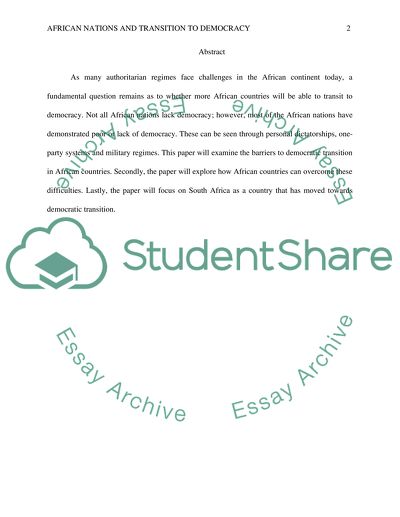Cite this document
(“Will It Be Possible for more African Nations to Transition to Essay”, n.d.)
Retrieved from https://studentshare.org/history/1447982-is-it-will-be-possible-for-more-african-nations-to
Retrieved from https://studentshare.org/history/1447982-is-it-will-be-possible-for-more-african-nations-to
(Will It Be Possible for More African Nations to Transition to Essay)
https://studentshare.org/history/1447982-is-it-will-be-possible-for-more-african-nations-to.
https://studentshare.org/history/1447982-is-it-will-be-possible-for-more-african-nations-to.
“Will It Be Possible for More African Nations to Transition to Essay”, n.d. https://studentshare.org/history/1447982-is-it-will-be-possible-for-more-african-nations-to.


